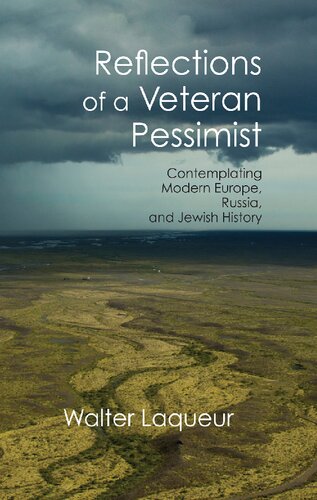

Most ebook files are in PDF format, so you can easily read them using various software such as Foxit Reader or directly on the Google Chrome browser.
Some ebook files are released by publishers in other formats such as .awz, .mobi, .epub, .fb2, etc. You may need to install specific software to read these formats on mobile/PC, such as Calibre.
Please read the tutorial at this link: https://ebookbell.com/faq
We offer FREE conversion to the popular formats you request; however, this may take some time. Therefore, right after payment, please email us, and we will try to provide the service as quickly as possible.
For some exceptional file formats or broken links (if any), please refrain from opening any disputes. Instead, email us first, and we will try to assist within a maximum of 6 hours.
EbookBell Team

4.4
62 reviewsHaving been exposed early in life to the dangers of extreme nationalism, journalist and historian Walter Laqueur chose to align his thinking with Victor Hugo’s ideal of a “European Brotherhood” where the European nations would merge into a “superior unit” overcoming war and strife. However, as time wore on and consolidating national solidarities seemed ever more impossible, Laqueur became more of a pessimist. Today, he still hopes for unity, but doubts that it will ever come to pass.
This volume represents the culmination of thought of a most noteworthy, contemporary historian. Reflections of a Veteran Pessimist is divided into four sections: Europe in Decline, Jews in the Twentieth Century, Russia after the Soviet Union, and Observations. Having lived under the Nazi regime, Laqueur is keenly aware of the dangers posed by strident nationalism in Europe and rampant religious zealotry in the Middle East. Reflecting on the lingering financial crisis in Europe, Laqueur observes its serious consequences―populist movements and growing opposition to European integration. He notes that the influx of refugees resulting from Middle Eastern instability have sharpened the challenges facing Europe and weakened its unity. Laqueur also examines the growth of authoritarian nationalism in Russia and the de facto renewal of the Cold War with the West.
Offering fascinating insights into a range of themes across the period, this book is valuable reading for all those interested in twentieth-century European, Russian and Jewish history.